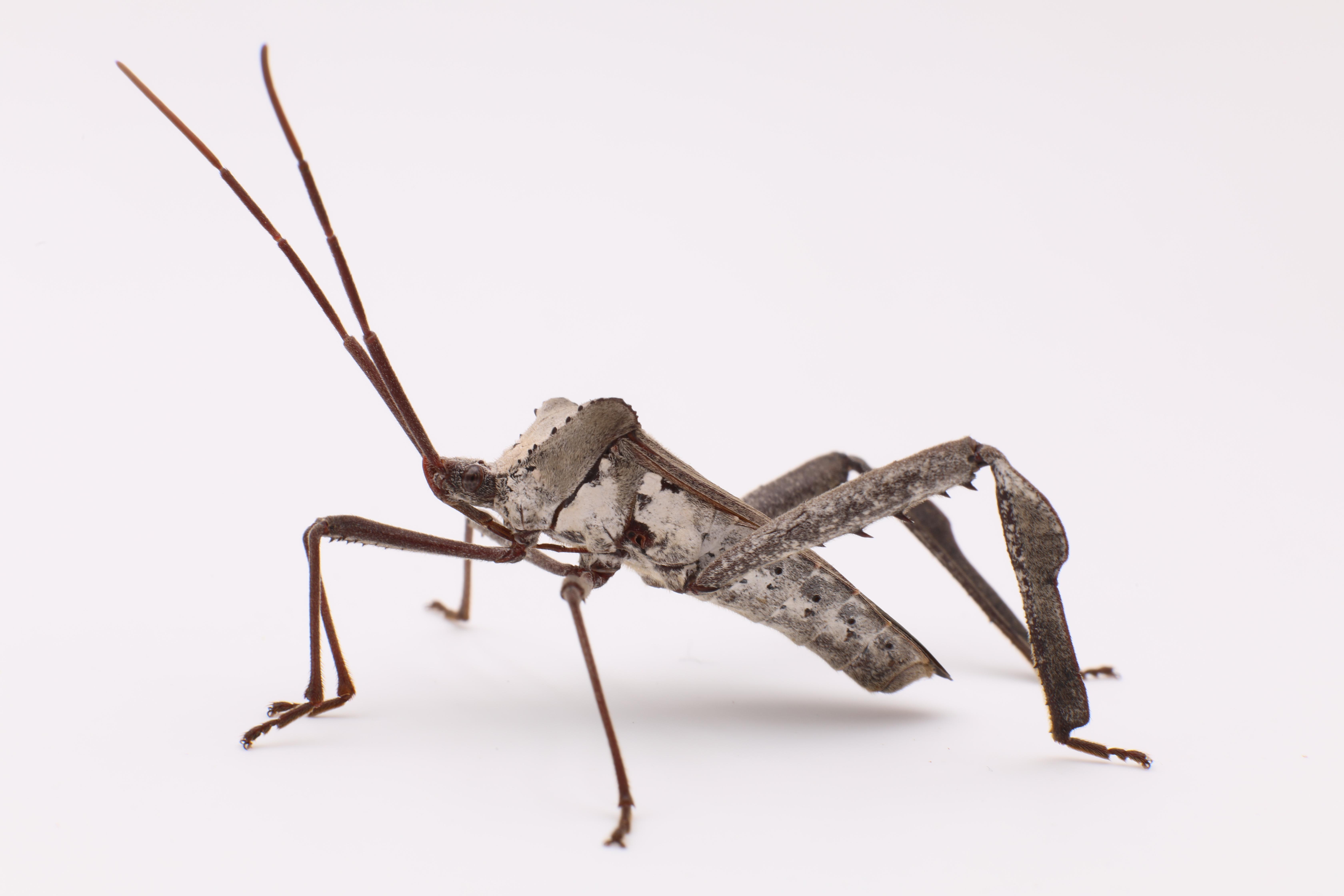
Image: Acanthocephala declivis, a hemipteran insect in the family Coreidae. Photo by CWMiller.
The effects of nutrition on the insect skeleton and implications for biopesticide use
Supervisor: Professor Christine Miller
There are 1.4 billion insects per person on this planet, and yet we know shockingly little about them While countless scientific studies have examined the environmental factors that affect the development of the human skeleton, the same cannot be said for the insects. We have recently discovered that good nutrition can lead to an insect exoskeleton that is over four times more resistant to injury. This work, however, has only focused on one insect species. The next step is to determine if this phenomenon is common across the insects. If it is, the implications could be profound. Insects have variable diets, just like humans, and their nutrition can be affected by climate change, habitat destruction, and the presence of toxins such as pesticides.
Type of work
We have applied for funding that would allow the student to travel to Benin in West Africa for two months to rear insects and run the experiments on-site, returning with the specimens to Cambridge for measurements of the insect cuticle, analysis, and writing. It will be valuable to know if applicants would like to travel to Benin (all expenses paid) as part of this MPhil, or if they would rather work on-site at Cambridge for the entire year.
Importance of the area of research
This project will examine the effects of ecologically relevant variation in nutrition on three leaf-footed bug pests of cowpea in Africa, Clavigralla tomentosicollis, Riptortus dentipes, and Anoplocnemis curvipes. These insects will be raised on two cultivated pulses and a wild host, and we will look at consequences for their exoskeletal cuticle. We will next see if the differences in their cuticle affect their susceptibility to a fungal biopesticide that is used for environmentally friendly pest management. This work will not only improve pest management for the most important crop in West Africa, it also will provide valuable scientific knowledge on how insect skeletons are affected by their diet.
References
Woodman TE, Chen S, Emberts Z, Wilner D, Federle W & Miller CW. Developmental nutrition affects the structural integrity of a sexually selected weapon. Integrative and Comparative Biology 61: 723-735
